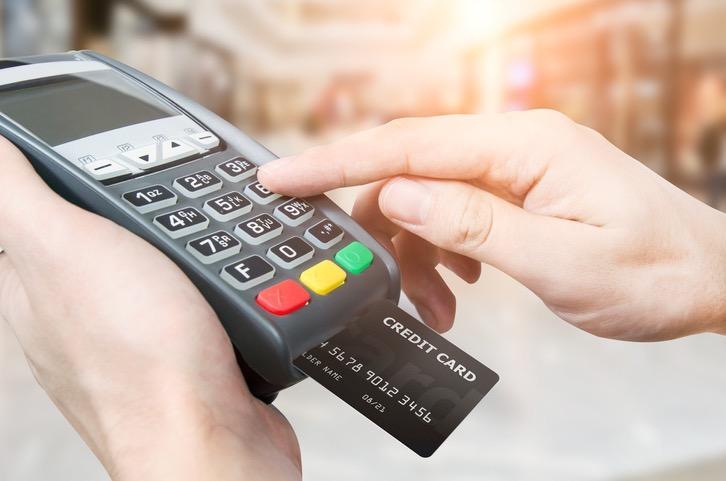If you’re running a small business, odds are you’ve shopped around for payment processors.
Key Takeaway You Will Get From This Article
A critical difference between EMS and the other companies such as, Helcim, Square, Stax Payments, PaymentCloud, PayPal, National Processing, and Stripe is time in the business. EMS has been around longer than any of the other companies. In that time, we’ve learned what does and doesn’t work for our small business partners.
One of the things you may have noticed is that payment processing is not a one size fits all industry. Different companies will have different pricing models that are best for one type of business but terrible for others.
Not knowing reputable brands can also leave you open to scams when you’re approached with an offer that’s too good to be true. Finding a suitable payment processor for your business can save you a lot of money in the long run.
Thankfully, Electronic Merchants Systems is here to help set the record straight. One of the reasons why Electronic Merchant Systems (EMS) has been around since 1988 is our attention to our customers.
We know how challenging it can be to own and operate a small business, and we pride ourselves on being a leading merchant services provider that offers practical solutions to businesses across the country. Our 4.7/5 stars rating on Google Reviews from over 1000 customers is a testament to our service and expertise.
In all that time, we’ve seen how our competition is doing, and we want to take the time to highlight some of the best payment processors in the industry today. At EMS, we want our customers to be as informed about business decisions as possible, and showcasing the other options is one of the best ways to do that.
We picked these companies based on optimization for small businesses, features, and price.
Table Of Contents
National Processing
Stripe
Bonus - Electronic Merchant Systems
How Can We Help You?
Helcim
Helcim gives its customers the most bang for their buck. Their interchange-plus pricing is excellent for most businesses and offers no long-term contracts or monthly fees.
Helcim will even reward you with lower costs as your sales numbers increase. You’ll pay 0.3%+$0.08 for card-present (CP) sales and 0.5%+$0.25 for card-not-present (CNP) sales from the start.
But, Helcim will reward you for having $25,000/month sales with a price drop - pay 0.25%+0.07 for CP and 0.45%+0.20 for CNP!
Square
Square is quickly becoming one of the most recognizable payment processors, with millions of businesses using the service.
One of the reasons for this is the appeal to new business start-ups. You won’t need to worry about working with another point of sale (POS) vendor or online payment gateway provider because Square takes care of everything.
Square is also kind regarding fees as there are no monthly or chargeback fees.
Stax Payments
Users of Stax pay a monthly subscription fee that isn’t seen all too often in the payment processing business these days.
These fees are best suited for companies that maintain a high sales volume, and Stax offers integrated sales and invoicing tools to help with your bookkeeping.
Their inclusive package also offers customizable POS systems so you can make the most of your countertop solution.
PaymentCloud
PaymentCloud is a partner of EMS, so we can speak confidently on how they stand out amongst the pack for a couple of reasons.
The first reason is that they aren’t a direct processor- they help merchants receive processing by partnering with multiple payment processing companies to give you the best odds of getting approved.
The second reason is their ability to find processing for businesses in high-risk industries. Examples of high-risk industries would be guns, tobacco, adult entertainment, and CBD, to name a few.
Are you in a low-risk industry? Then enjoy no monthly minimum sales requirement from PaymentCloud.
PayPal
You’re probably already familiar with PayPal; in fact, Morning Consult ranks it as the second most trusted brand in the world.
You may not know that it’s more than just a way to make payments for products online or send money to your friends.
PayPal is also one of the most popular payment processors for small businesses for its ease of use and ability to integrate various checkout systems and CRMs.
Their no monthly fee pricing is another reason small businesses stick with PayPal.
National Processing
National Processing understands that not everyone is operating the same kind of business. They incentivize non-profits by charging a much lower interchange-plus rate than traditional retail stores.
Their standard interchange-plus rate for retail is the interchange+0.18%+$0.10, whereas their rate for non-profits is the interchange+0.12%+$0.06.
In addition to their draw for non-profits, National Processing runs a cash-discount program where debit cards are treated the same as cash.
Stripe
If you’re running an e-commerce business, there may not be a better option than Stripe.
Stripe accepts international credit cards and over 130 different currencies, leaving your store available to a massive customer base that stretches across oceans.
The Stripe platform is also highly customizable, as you can integrate over 450 extensions. Stripe can offer your business a customized interchange-plus rate if your business continues to grow.
Bonus - Electronic Merchant Systems
Would it be too far-fetched to consider Electronic Merchant Systems as one of the best payment processors for small businesses? Absolutely not!
In fact, we'd like to think we stand out from the rest of the competition.
A critical difference between EMS and the other companies listed above is time in the business. EMS has been around longer than any of the other companies. In that time, we’ve learned what does and doesn’t work for our small business partners.
Our service excellence has kept businesses running across the country for more than 30 years - and now we’d like to work with you.
Up to 95% of merchants see savings when they receive a complimentary rate review from Electronic Merchant Systems. And once you're signed on, you can enjoy peace of mind knowing that our 24/7/365 customer service is there for you when you need us, where ever you need us.
Our expertise doesn't end with payment processing. We offer a thorough suite of merchant services, including mobile point of sale solutions, web design, and gift card & loyalty programs. What's not to love?
How Can We Help You?
You might need some more information before you get on the phone with someone, and if that’s the case, we invite you to download our free Small Business Owners Guide to Choosing the Right Payment Processor.
However, if you’re ready to start asking questions, the experts at EMS are available to answer them – for free.






